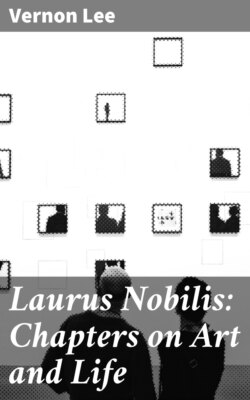Читать книгу Laurus Nobilis: Chapters on Art and Life - Vernon Lee - Страница 21
На сайте Литреса книга снята с продажи.
XV.
ОглавлениеThere is another reason for such ascetism as was taught in Marius the Epicurean and in Pater's book on Plato: the modest certainty of all pleasure derived from the beautiful will accustom the perfect æsthete to seek for the like in other branches of activity. Accustomed to the happiness which is in his own keeping, he will view with suspicion all craving for satisfactions which are beyond his control. He will not ask to be given the moon, and he will not even wish to be given it, lest the wish should grow into a want; he will make the best of candles and glowworms and of distant heavenly luminaries. Moreover, being accustomed to enjoy the mere sight of things as much as other folk do their possession, he will probably actually prefer that the moon should be hanging in the heavens, and not on his staircase.
Again, having experience of the æsthetic pleasures which involve, in what Milton called their sober waking bliss, no wear and tear, no reaction of satiety, he will not care much for the more rapturous pleasures of passion and success, which always cost as much as they are worth. He will be unwilling to run into such debt with his own feelings, having learned from æsthetic pleasure that there are activities of the soul which, instead of impoverishing, enrich it.
Thus does the commerce with beautiful things and beautiful thoughts tend to develop in us that healthy kind of asceticism so requisite to every workable scheme of greater happiness for the individual and the plurality: self-restraint, choice of aims, consistent and thorough-paced subordination of the lesser interest to the greater; above all, what sums up asceticism as an efficacious means towards happiness, preference of the spiritual, the unconditional, the durable, instead of the temporal, the uncertain, and the fleeting.
The intimate and continuous intercourse with the Beautiful teaches us, therefore, the renunciation of the unnecessary for the sake of the possible. It teaches asceticism leading not to indifference and Nervana, but to higher complexities of vitalisation, to a more complete and harmonious rhythm of individual existence.
